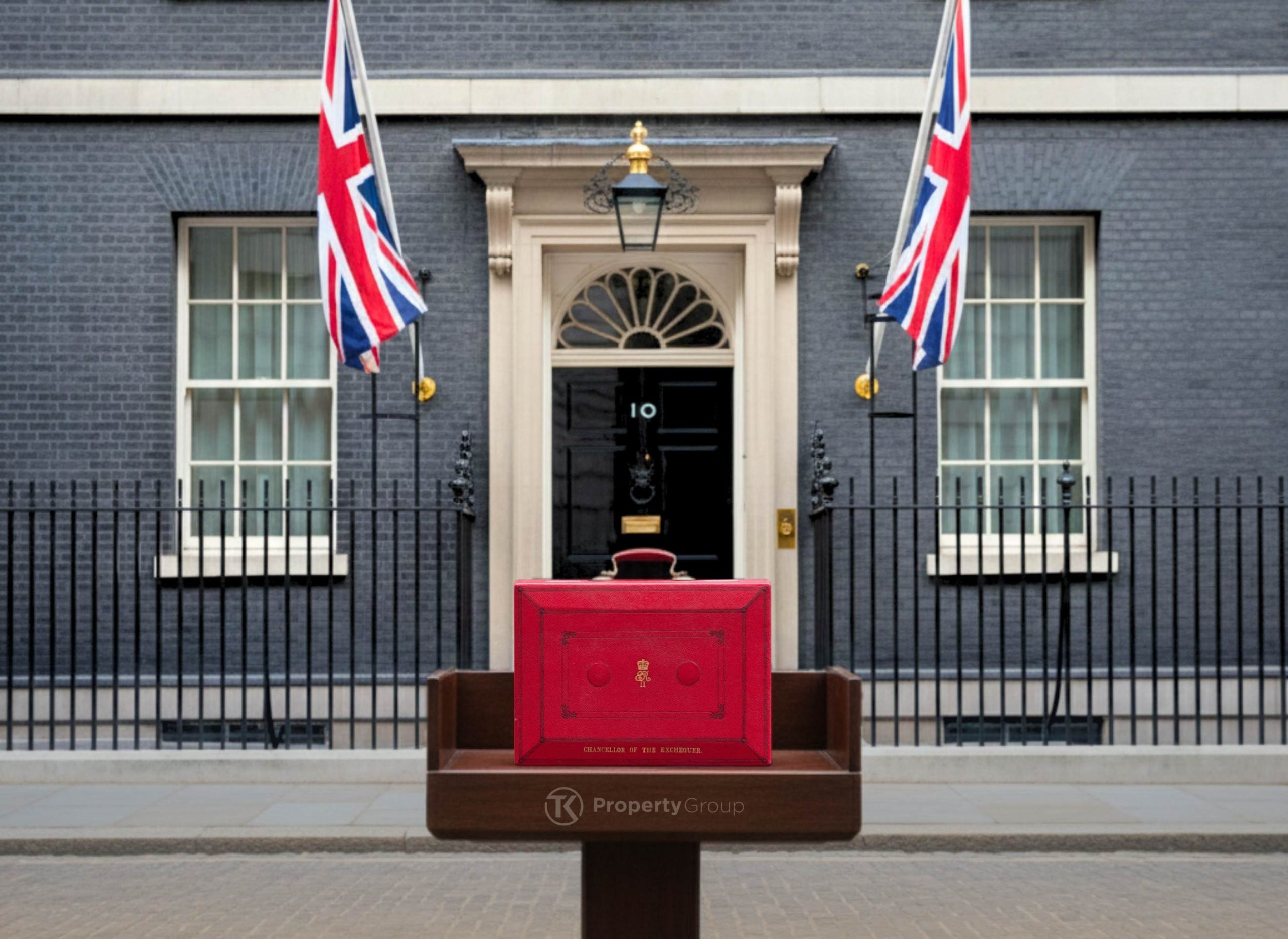The Government has delivered the Autumn Budget 2025, setting out major tax changes that will impact property investors, landlords and high value homeowners across the UK.
Table of Contents
At 12:45pm on the 26th of November 2025, the Chancellor of the Exchequer, Rachel Reeves, began to deliver the UK 2025 Autumn Budget in the House of Commons, although an accidentally leaked OBR publishing revealed the budget in full an hour before the budget delivery began. This Budget came with significant expectations due to weak economic growth, elevated borrowing costs and the Chancellor’s need to raise an estimated £20-£30 billion to meet fiscal rules.
We have summarised the major announcements and what they mean for investors, homeowners and the wider property market. Analysts have warned that any misjudgement could impact borrowing costs, raise pressure on taxpayers or damage Labour’s political credibility, making this one of the most consequential Budgets in recent memory.
What the 2025 Autumn Budget Means for Investors and Homeowners
The 2025 Autumn Budget introduces reforms affecting taxation, pensions, rental income, high-value property ownership, and savings. While some measures, such as the high-value property levy and income tax threshold freeze, were widely anticipated, the overall package was less punitive than many expected. Understanding these changes is essential for investors, landlords, and prospective buyers navigating the UK property market, as opportunities remain for those who act strategically.
With speculation circulating about potential stamp duty rises, new property taxes and rental income being brought into scope for National Insurance contributions, the reality of today’s Budget is far softer than many expected. This is a positive outcome for both homeowners and investors.
Key 2025 Autumn Budget Property Takeaways
New Annual Tax on Properties Worth Over £2 Million
Owners of properties worth £2 million or more will pay a new “high-value council tax surcharge” from April 2028.
Four bands: £2–2.5m = £2,500, rising to £5m+ = £7,500.
This annual levy functions as a holding cost rather than a transaction tax.
Property Income Tax
Property income tax rises 2 percentage points from April 2027.
Rates will be 22% for basic, 42% for higher, and 47% for additional rate taxpayers.
Capital Gains & Wealth Tax Reform
Reduced capital gains relief on disposals to employee ownership trusts, raising £0.9bn.
High-value private residences face tighter CGT rules.
New Tourist Tax On Overnight Stays
A new tourist tax on overnight stays for hotel guests visiting the UK, following in the footsteps of the rest of Europe.
This will inevitably increase the demand for short-term rentals on platforms such as Airbnb.
Freeze on Income Tax Thresholds
Income tax thresholds frozen for 2028-29, 2029-30, and 2030-31.
Estimated 920,000 additional higher-rate taxpayers.
Expected to raise £8.3 billion per year.
Savings and Dividend Tax Changes
Cash ISA allowance reformed with a £20,000 cap from April 2027; £8,000 must go into investments.
Dividend and savings income taxed 2 percentage points higher from April 2026–2027.
Corporation Tax & Developer Impacts
Writing down allowances (WDAs) reduced from 18% to 14% from April 2026.
New 40% first-year allowance for companies introduced January 2026.
Expected to raise £1.5 billion per year by 2029-30.
Deep Dive: The 2025 Autumn Budget and the Property Market
Buy-to-Let, Rental Sector, and Limited Company Investing
Landlords face higher property income taxes and new levies, which may influence consolidation in the rental market. Investors should consider the benefits of holding properties through a limited company, particularly for portfolios with multiple units or higher-value assets. A corporate structure can offer tax efficiencies, potentially mitigating some of the impacts from the new income tax and property levies.
Tourist Tax and Short-Term Let Opportunities
The 2025 Autumn Budget includes measures introducing a tourist tax in certain areas, which may incentivise local authorities to support short-term rental platforms such as Airbnb. This could drive:
- Increased overnight stays in popular cities and tourist destinations.
- Higher rental yields for property owners willing to pivot to short-term lets.
- A shift in investment strategy towards properties suitable for holiday lets or serviced apartments.
Investors in high-demand tourist areas may find new opportunities to capitalise on short-term rental demand, balancing longer-term capital growth with immediate income.
Prime Market vs Mid-Market
The high-value property levy and CGT reforms signal a cooling effect on prime homes.
Listings over £2 million are down 13% year-on-year.
Mid-market properties remain more resilient, providing opportunities in regions with sustainable value growth.
First-Time Buyers & Movers
Affordability remains a challenge.
With no direct stamp duty relief, many buyers may delay moves, adding friction to the housing market, potentially increasing the rental demand.
Read more about UK rental market trends 2025
Developer and New Build Sentiment
Top-end buyers may pause purchases due to high-value levy and CGT changes.
Demand for new-builds in growth locations remains strong.
Developers may pivot to affordable segments, focusing on regional cities, logistics hubs, and smaller units.
Why Property Investors Can Still Be Optimistic After the 2025 Autumn Budget
- Strong fundamentals: Housing supply shortage, demographic pressures, and rising rental demand continue to support the market.
- Mid-market insulation: Properties below the levy threshold remain attractive.
- Property as a tangible asset: High-net-worth individuals continue to view property as a wealth-preservation and legacy-building tool.
- Strategic advantage: Early, well-structured investors can benefit from relative tax advantages.
- Interest rate moderation: Long-term rates may stabilise in 2026, supporting mortgage affordability and transaction volumes.
What Property Investors Should Do Next After The 2025 Autumn Budget
- Review yield models and factor in higher holding costs on high-value properties, including the new property levy and increased property income tax.
- Assess exit strategies for assets affected by capital gains tax changes, particularly in prime-market segments.
- Consider holding or acquiring properties through a limited company where appropriate to benefit from potential tax efficiencies.
- Explore opportunities in regional and mid-market properties to avoid the heaviest tax bands and capture more stable returns.
- Evaluate short-term rental potential, including how the new tourist tax might influence demand for platforms such as Airbnb.
- Monitor transaction timing carefully, as some investors may act before market sentiment shifts further.
Time to Act: Don’t Wait to Capitalise on Opportunities
The reality highlighted by the 2025 Autumn Budget is simple. In the property market, waiting rarely pays off. Delaying decisions almost always results in missed opportunities, particularly when reforms keep shifting the landscape. Some of this year’s announcements place extra pressure on investors, but they do not change the long-term trajectory of the UK property market. If anything, they underline the importance of acting decisively rather than sitting on the sidelines.
The Government’s emphasis on directing savings into stocks and shares through ISA reforms underscores the value of active investment. Property, however, continues to outperform traditional savings routes, driven by chronic undersupply, strong rental demand, and long-term capital appreciation. Historically, UK house prices have doubled approximately every ten years, a pattern that has persisted through different governments, tax reforms, and economic cycles. Regulatory changes should not deter serious investors. While new rules, thresholds, and costs will always emerge, the property market has shown consistent growth over time, and those who hesitate risk missing the strongest opportunities. Read more about when to invest.
If you are ready to take advantage of the opportunities that still exist, we are ready to guide you. TK Property Group, named the UK’s Best Property Agency by the United Kingdom Property Awards 2025/26, holds the largest market share of properties in key investment hotspots across the country. We work only with leading UK developers, ensuring our clients have access to high quality projects that align with their strategy. Whatever your goals, we can match you with a property that delivers.
Ready to Take the Next Step?
Speak with our award winning team today about your next UK property investment.
If you’re uncertain about your property plans, we offer a free 1-to-1 consultation with an industry expert, just get in touch.
For official guidance and information take a look at the official OBR economic and fiscal outlook publication.





